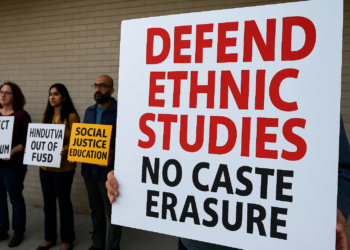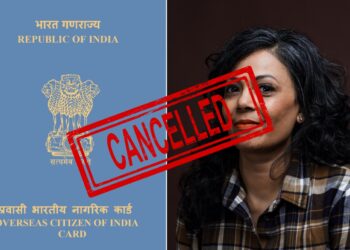Policy Change Sparks Uncertainty for International Scholars and Educational Institutions
Thousands of Indian students aspiring to pursue higher education in the United States are facing serious uncertainty following a recent announcement that the US government will freeze scholarship funding under selected federally sponsored programmes. This policy change affects numerous scholarships and financial aid schemes, many of which are critical for international students relying on partial or full financial support.
The decision has already impacted multiple academic institutions and ongoing admissions processes, creating ambiguity for both current and prospective students. Indian students, who make up one of the largest international student cohorts in the US, now find themselves in an unexpected and challenging position.
Scope of the US Scholarship Funding Freeze
According to official sources, the funding freeze applies to:
- Federally administered educational exchange programmes
- Merit- and need-based scholarships facilitated through US embassies and consulates
- Research grants and fellowships offered under government-supported academic initiatives
- Scholarships linked to STEM fields, humanities, public policy, and international development
While the US State Department has not yet issued a formal end date for the freeze, it is expected to be in place until a full review of programme allocations and spending priorities is conducted.
Key programmes potentially affected include:
- Fulbright-Nehru Fellowships
- Global Undergraduate Exchange Programme (UGRAD)
- Hubert H. Humphrey Fellowship Programme
- Funding via US Agency for International Development (USAID) and Department of Education
This abrupt decision has halted application processing for many students mid-cycle, affecting those already shortlisted for the 2024–25 academic year.
Impact on Indian Students and Global Academic Mobility
The freeze could affect thousands of Indian students, particularly those from economically weaker backgrounds who depend on scholarship funding to access top-tier universities in the US. India currently sends over 260,000 students to the United States annually, a significant portion of whom apply through scholarships.
Immediate implications include:
- Cancellation or deferment of scholarship-based admission offers
- Increased financial pressure on students and families
- Limited access to research programmes, especially in public health, climate science, and social policy
- Disruptions in visa issuance for students relying on proof of financial support
- Recalibration of education plans, with many now exploring alternative destinations such as Canada, the UK, or Australia
For those already studying in the US, some institutions are stepping in to offer temporary support, but long-term funding remains uncertain.

Response from Educational Institutions and Indian Authorities
Several US universities have expressed concern over the timing and execution of the funding freeze. University officials have warned that this could:
- Affect campus diversity goals
- Reduce access to global talent
- Complicate ongoing collaborations with Indian universities and research bodies
Indian authorities, including the Ministry of External Affairs and the Indian Embassy in Washington, have taken note of the situation. They are reportedly in communication with US counterparts to seek clarity and, where possible, request the protection of commitments already made to scholarship recipients.
Indian students and parents are encouraged to remain in contact with their university admissions offices and to regularly check updates from the US-India Educational Foundation (USIEF) and the Institute of International Education (IIE).
For related coverage, visit NRIAffairs.com’s Study section.
Alternative Funding Strategies for Affected Students
In light of the freeze, students are advised to explore alternative scholarship opportunities and private funding options to keep their education plans on track.
Potential avenues include:
- Indian government scholarships such as the National Overseas Scholarship or ICCR Scholarships
- State-funded education loans through Indian banks under the Vidya Lakshmi Scheme
- Private university-specific grants offered by US institutions on a discretionary basis
- Crowdfunding platforms tailored for education abroad
- Corporate sponsorships and CSR-driven scholarship programmes
In addition, students should verify whether any funding conditions allow deferral of admission or deferred scholarships, as some universities may offer flexibility during the review period.
A Turning Point for Indian Students in the US
The US decision to freeze scholarship funding has introduced significant unpredictability into the education plans of Indian students. As global competition for international students intensifies, this move could reshape long-standing educational flows and prompt students to diversify their destinations.
While the future of federally supported US scholarships remains uncertain, students are advised to stay informed, explore backup funding plans, and seek guidance from education consultants, embassy officials, and university advisors.
For the Indian diaspora and students abroad, preparedness and proactive planning will be key to navigating this evolving situation.











